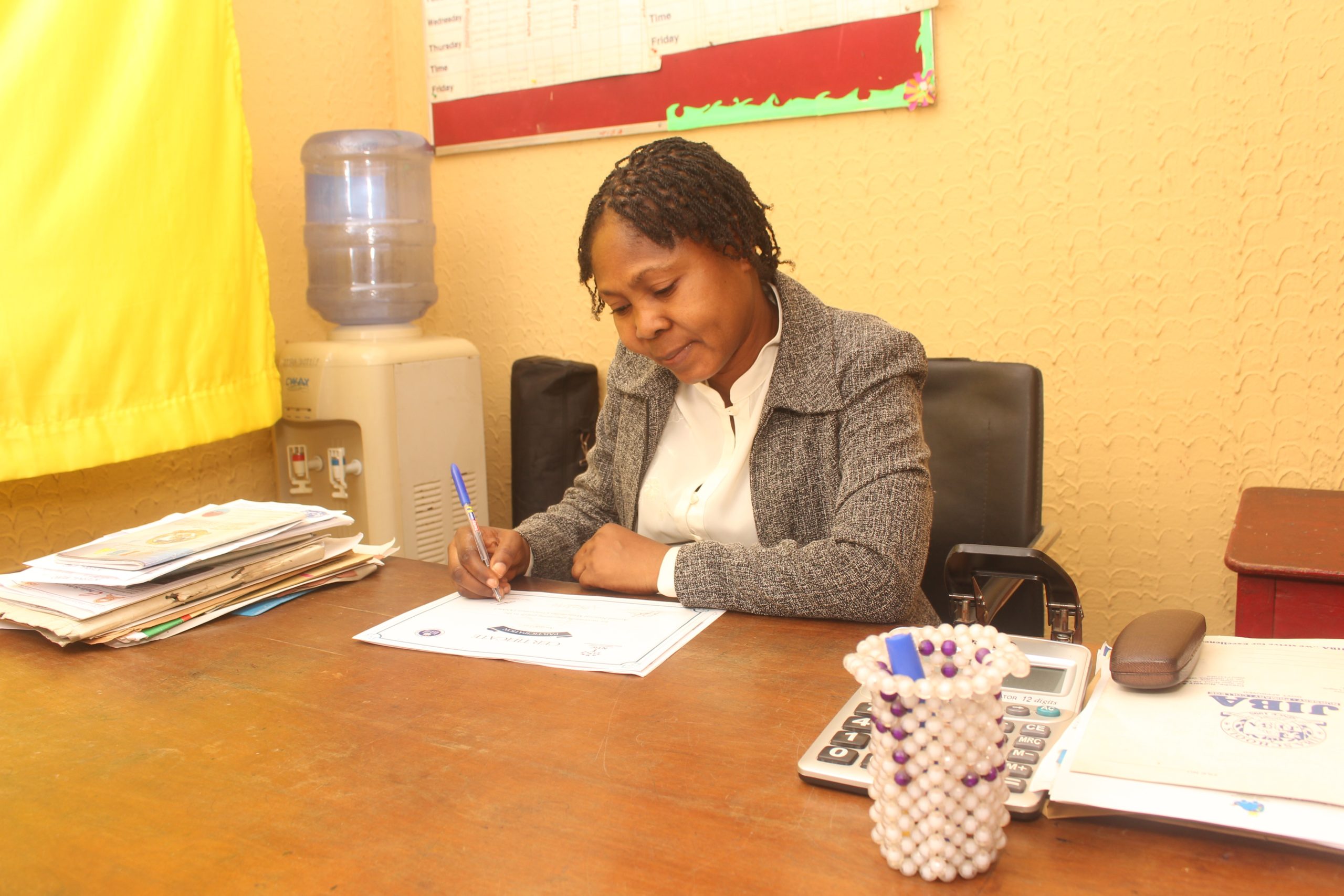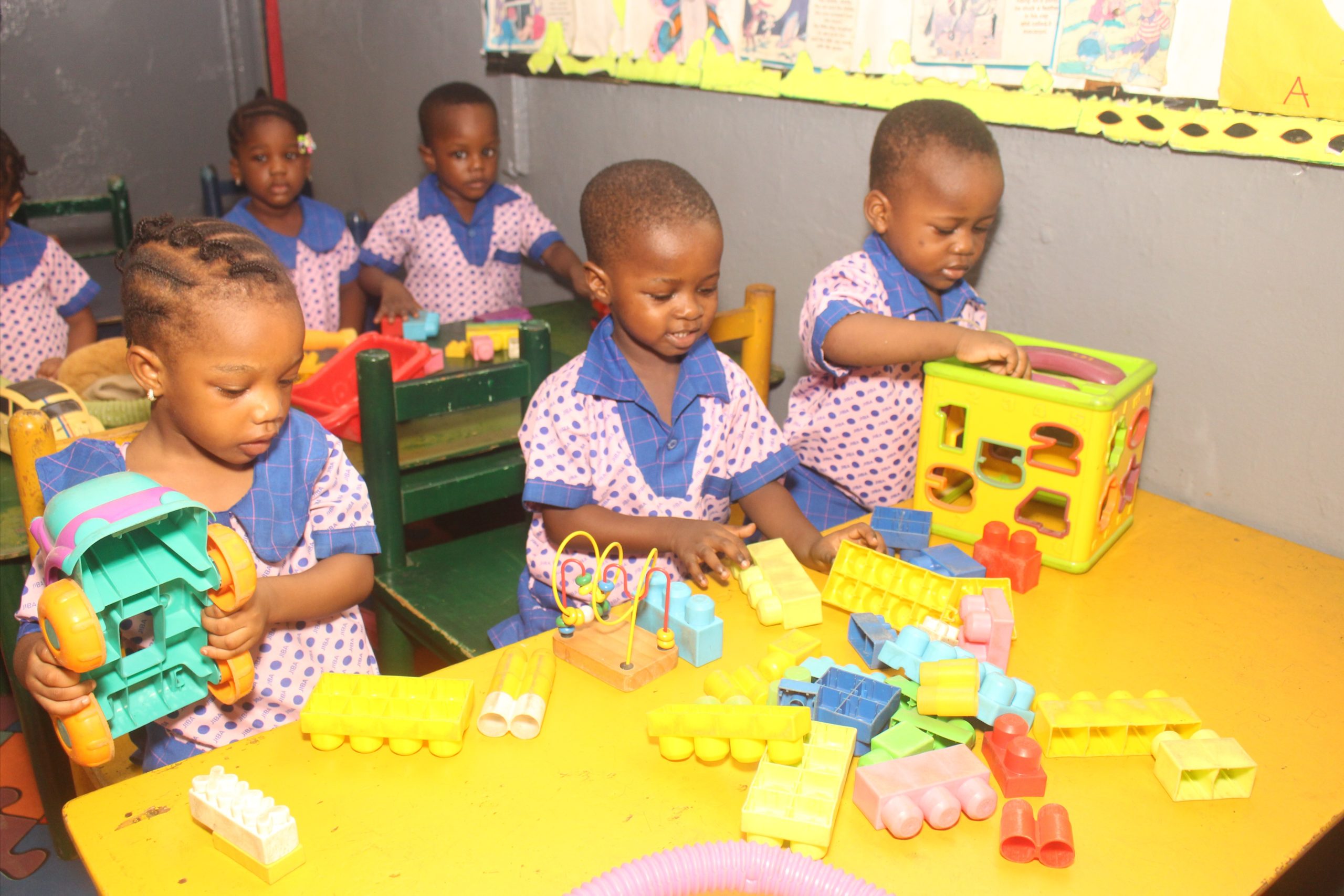
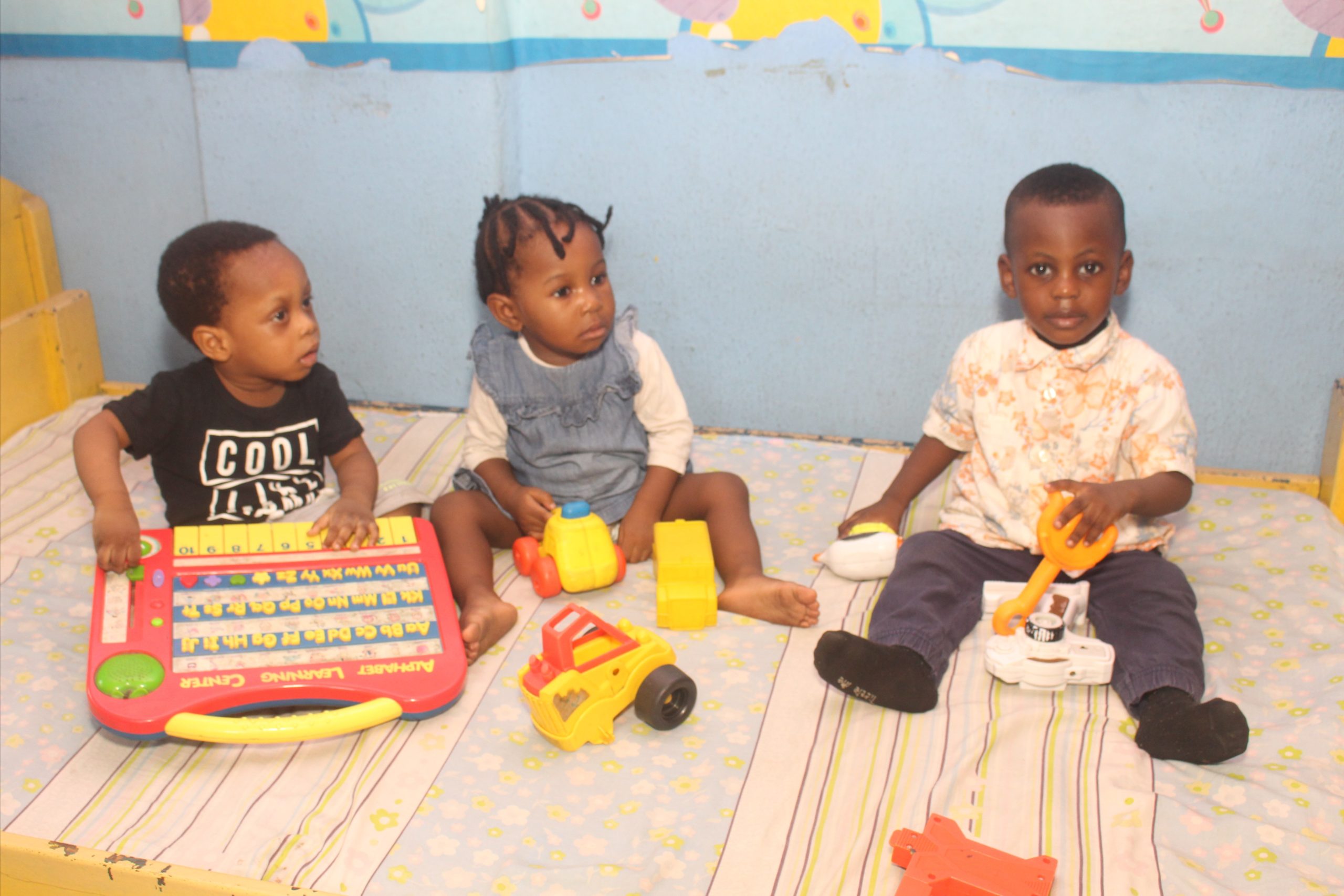
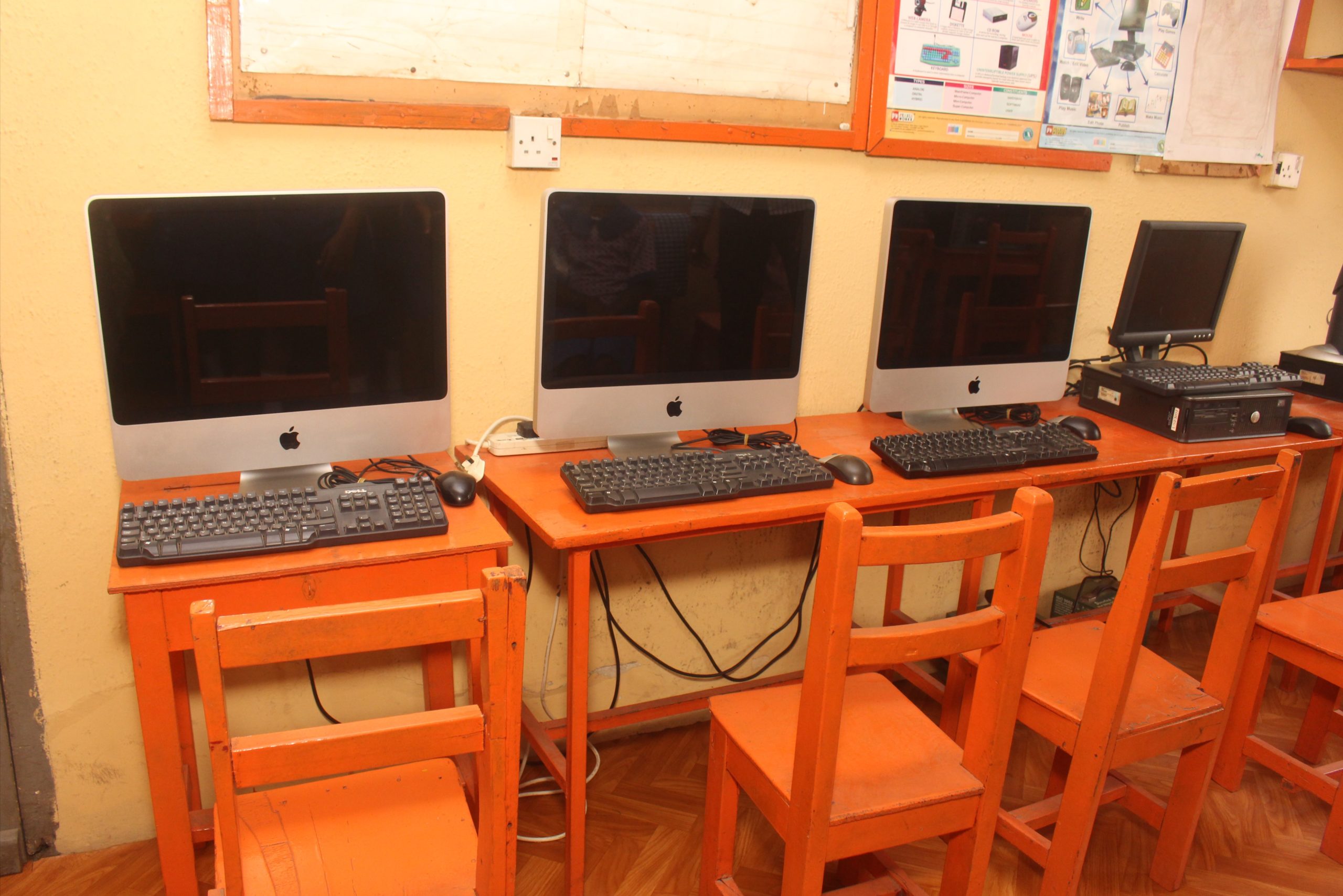
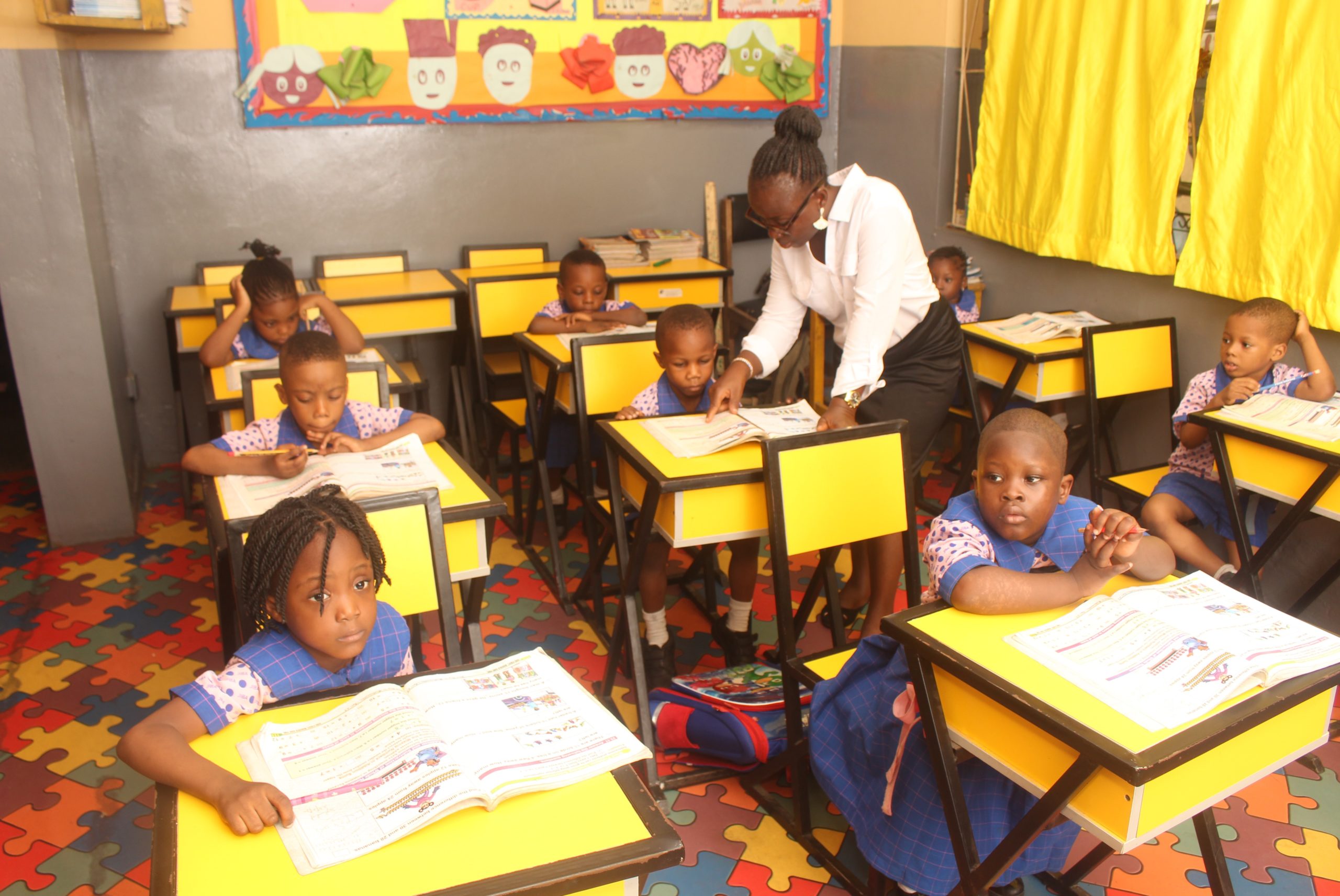

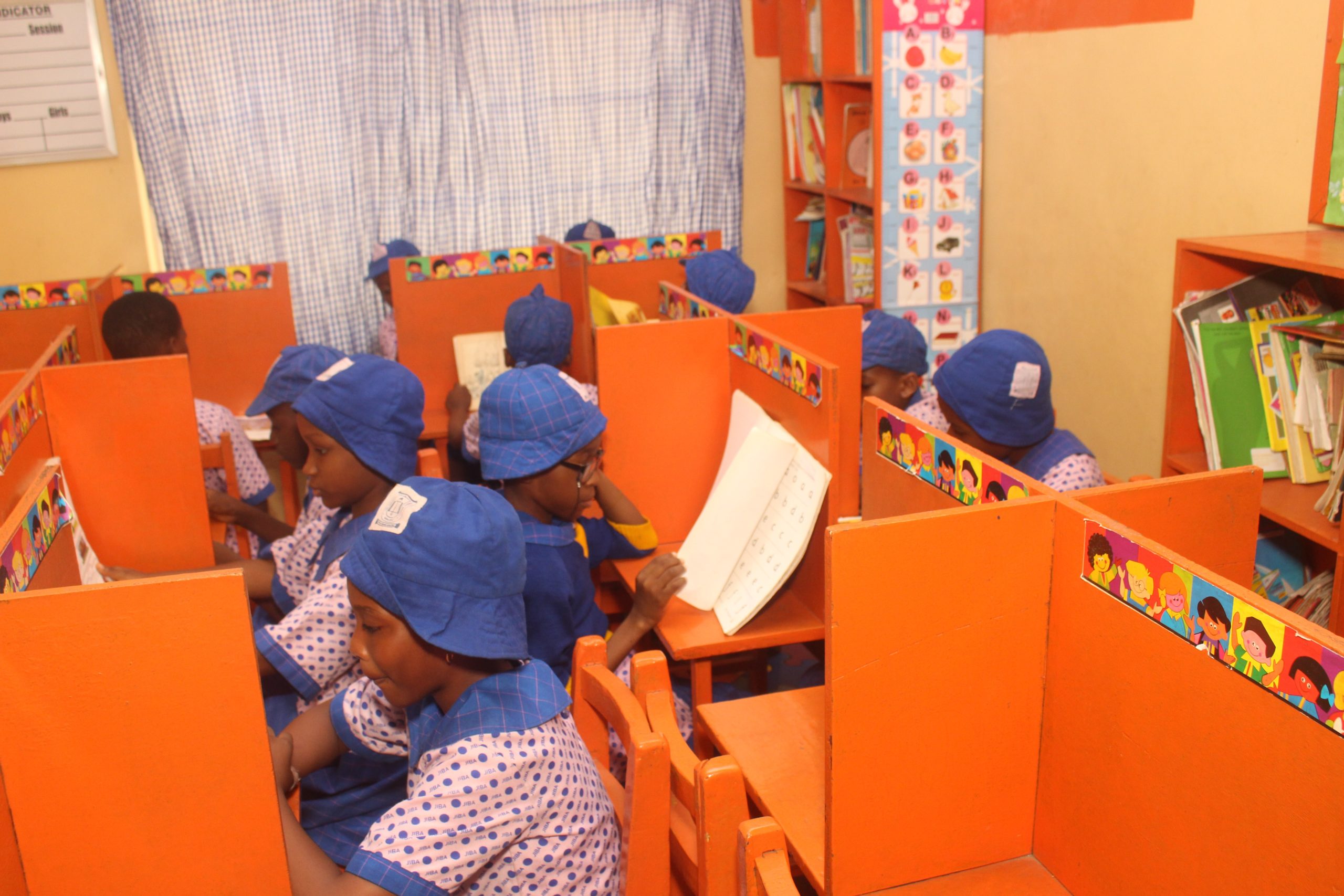
Children must be aged two years when they join us at the beginning of the School year. A typical session will include time spent on listening and talking, reading and writing. Music, singing and art are all part of the day. Of course, every session will include lots of playtime inside or outside.
Nursery children moving up find the progression smooth and gentle. Gradually, they are introduced to new skills such as discovering numbers, reading, making up their own books with captions, dramatizing simple stories and developing comprehension and recording skills.
In the second Nursery year there is greater concentration on English skills, particularly comprehension, language and reading development. In number work, children learn about basic notions of money, capacity, volume, weights, length and time.
Art work involves painting. Sport allows children to develop personal co-ordination and teamwork naturally, there are ample break period during the day, as well as quiet times.
Above all, we encourage the Nursery children to gain a positive attitude towards learning, towards others and towards themselves, making them well equipped to move on to the Basic classes.
The Basic classes are for five to ten-year old. Emphasis on the development of basic skills continues and the pace of work quickens. Each class enjoys use of computer and the library. Children are heard to read regularly and encouraged to take home their books in order to practice their reading skills. Our five year olds are usually reading.
More sophisticated Language and Numeracy skills are now taught and these in turn are used in Science and Humanities, where we encourage children to question ‘how’, ‘why’ and ‘what if’ In addition, French is taught to all children from Nursery class in a lively, exciting manner. Each class has its own class teacher, but there are assistants and specialist subject teachers in Music, French, Art, Drama, Sports, Computer, Phonics and Phonetics. The School is also registered with an approved Hospital.
Homework is introduced in all classes and consists of short tasks in Reading, Spelling, Numeracy and Literacy.
There are drama productions for parents as well during the Sports Day, Graduation, Prize-giving Day and Cultural Day.
Most subjects are taught by specialists and children have full use of the Science Laboratory, Art and Craft room, Music, Computer room and Library.
Homework increases as the children become more self-motivated. In fact, all schoolwork at this age is steady, purposeful and carefully attuned over four years to the children’s age and ability. It soon builds up their confidence, preparing them for senior school entrance exams in their final year.
Undoubtedly the years between two and ten are the most important in a child’s educational career. During these years, potentials can be recognized and encouraged, habits of hard work, self-reliance and honesty can be forested and human values of kindness, compassion and generosity towards others will be learnt.
Children who are ten years old, leave and move on to the senior School, the Head teacher discusses with the parents the choice of senior Schools but are advised to move to JIBA COLLEGE. Entry is by competitive examination based on Literacy, Numeracy, Verbal and Non-verbal Reasoning and an interview, for all of which the pupils of JIBA are well prepared.
JIBA College was established in September 2007 to admit pupils graduating from JIBA Nur/Pry School and other Primary Schools.
There are plenty of opportunities for sports at JIBA. For Playgroup and Kindergarten children, these will be simple games in the playground. Through these activities, and music and movement, children can improve physical co-ordination, as well as learning to participate in team games.
The Basic classes continue to develop these games abilities and begin to make use of the sports equipment. The games take place both in the School grounds, on a sports field near to the School.
Inter Schools sports activities take place with National Champions in sprinting.
There is a House system and, at six, children join one of the Houses. Ruthless competitiveness is destructive and divisive, but fair competition is both enjoyable and natural to children of all ages.
Naturally, we welcome parents to attend and, of course, to participate in the parents’ races.
There are many extracurricular activities. These are a very important aspect of a child’s education, supporting the formal curriculum but also providing excitement and interest for the growing child.
The list of clubs is always changing according to pupils interests. Currently the list includes:
- Art
- Athletics
- Computers
- Football
- School Choir
- Scouting
- Music
- Swimming
- Red Cross
- Taekwondo e.t.c.
Every year, a number of exciting visits and excursions are organized. These include educational visits to places of interests, homes and outward bound courses. Graduation,/ Prize-Giving Day, Xmas Party, Cultural Day.
Music is important and we believe in developing talent and encouraging children to learn an instrument.
In addition, the children learn Speech and Drama. JIBA is unusual in offering Speech and Drama as part of the curriculum, rather than as an optional subject. Speech and Drama help children to express themselves clearly and well and to be at ease at, interviews. We enter pupils for various events and festivals. Throughout the School year there are plays and musical events and parents always form an enthusiastic audience.
HEAD TEACHER
